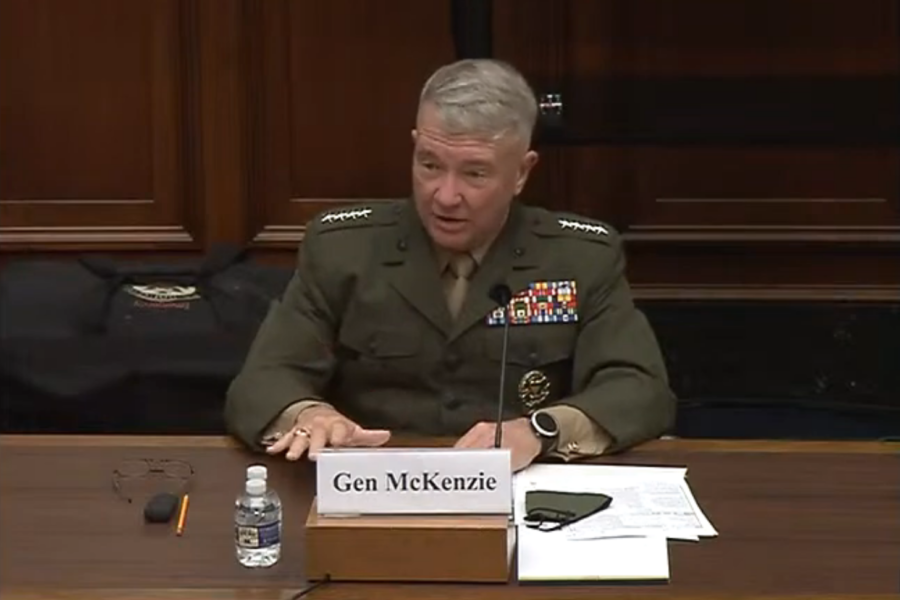U.S. Central Command and American diplomats are working with nations surrounding Afghanistan on agreements to base troops and aircraft for counter terrorism inside the country following the military’s withdrawal.
CENTCOM boss Gen. Kenneth F. McKenzie Jr., told the House Armed Services Committee on April 20 the command is going through “detailed planning” on what future operational plans and force laydowns could be after the withdrawal, which will be completed by Sept. 11.
Future counter terrorism operations will require ways to surveil targets in Afghanistan if needed, including with the use of overhead intelligence, surveillance, and reconnaissance aircraft operating from outside of the country. U.S. forces would then need to “finish” those targets through multiple options, including long-range fires and “targeted raids—although those are inherently dangerous, but you could still do it,” McKenzie said. “You could do it with manned aircraft. There are problems with all three of those options, but there’s also opportunities with all three of those options.”
Without a presence in the country, it will be “extremely difficult to do, but it is not impossible to do it,” McKenzie said.
The ability to base aircraft and counter terrorism forces in nearby nations would make this easier, and even though the command is engaged in a “significant effort” aimed at determining the best places for counter-terrorism forces, there’s no agreement with nearby nations yet, McKenzie said.
The U.S. military, earlier in the Afghan war, had agreements to operate out of large bases in locations such as Kyrgyzstan and Uzbekistan. It is not yet clear which countries could be considered.
Within Afghanistan, McKenzie said there are ongoing discussions for a status of forces agreement and what the size of the U.S. embassy would be after the withdrawal. It would be “helpful” if the U.S. can maintain the embassy in Kabul, because the presence will assist in the ability to “see into Afghanistan,” he said.
In response to questions, McKenzie made it clear that the Sept. 11, 2021, deadline to withdraw from the country is more than just U.S. and coalition military members. It also includes private contractors, who make up the largest presence in the country. Contractors are key to missions such as supporting the Afghan Air Force, which Defense Secretary Lloyd J. Austin III said the U.S. military will continue to assist with after the withdrawal.
“Everyone will leave, all U.S. defense contractors will leave as part of the withdrawal,” McKenzie said at the close of the hearing.
